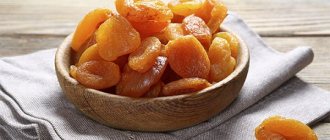Constipation and bowel problems are topics that we try not to mention in everyday conversations. We can talk with a friend about a sore throat or another cold, but we usually trust more delicate problems to doctors.
This is normal, but you need to understand that constipation is not something shameful or funny, it is a very common problem among people of any age. Before you run to the pharmacy for pills, you can try taking natural laxative products, which are no worse than chemicals in treating the disease.
What is constipation?
Constipation is difficulty in defecation.
Constipation in medicine refers to a condition in which a person, for one reason or another, has difficulty or is unable to defecate.
The condition is usually caused by the formation of too hard stools or impaired intestinal motility. The large intestine can also absorb excess water from stool, forming hard masses.
Scientists have long found out that the slower food masses move through the digestive tract, the more water the intestinal walls will absorb. Hard feces can be passed with difficulty and pain even with intact intestinal motility.
Normally, no more than 36 hours pass between eating and defecation. This figure varies from person to person, but, as a rule, two days after the last meal, hard stool begins to form.
Consequences of not following the diet
Without nutritional correction, isolated cases of constipation develop into chronic constipation. At the same time, the symptoms of this disorder worsen and the risk of complications increases, the most common of which are [15]:
- Hemorrhoids (Fig. 1).
- Anal fissures.
- Rectal bleeding.
Inflammation of the mucous membrane of the rectum and sigmoid colon - proctosigmoiditis.
Figure 1. Stages of development of hemorrhoids. Source: CC0 Public Domain
Causes and symptoms of constipation
Abdominal pain is a symptom of constipation.
Usually a person himself understands when he is constipated. This condition can rarely be confused with anything else. A person with such a problem notices that for several days he has not had any “big” trips to the toilet.
On these days, there might even be a urge to defecate, but it would not be possible to go to the toilet - there would be pain, it would be impossible to empty the intestines, making great efforts. Sometimes a small pea-shaped stool may be passed, but the person does not feel relief. Other symptoms of constipation:
Whole grain rye bread
Rye bread is a high fiber product. It is enough to eat a couple of pieces weighing 64 g to get 3.7 g of dietary fiber and cover the body's daily need for it by 15%.
Scientists have proven that rye bread helps cope with constipation much more effectively than its wheat counterpart and even laxatives. A study on this matter was conducted in 2010. At the same time, 51 patients with chronic constipation were offered 240 g of rye bread every day. In all participants in the experiment, the speed of movement of the food bolus through the intestines increased by 23%. The stool became softer, and bowel movements no longer caused discomfort. The control group that ate wheat bread did not show such improvement [27].
If possible, nutritionists and doctors recommend replacing white bread with rye bread. It is not only healthy, but also tasty, and also has a bright, incomparable aroma.
Common ways to relieve constipation
A proper diet will help relieve constipation.
Initial measures to relieve constipation include changing your diet and using transrectal enemas.
Treatment should primarily focus on diet and exercise rather than on laxatives, enemas and suppositories. Medication methods do not eliminate the cause of constipation, but only alleviate the symptoms.
The key to solving the problem may be increasing your fiber and fluid intake, as well as reducing your intake of astringent foods. Doctors recommend giving up alcohol during treatment, as it also contributes to constipation. Common medications:
- Preparations containing special dietary fiber.
- Stool softeners.
- Fast-acting oil-based lubricants.
- Prokinetic drugs that improve intestinal motility.
- Laxatives.
However, it is necessary to understand that taking medications is designed for severe constipation. If constipation has recently occurred due to dietary disorders, it is recommended to try to solve the problem for several days by using laxative foods. In this way, the patient will be able to avoid the side effects of the drugs.
Rhubarb
Rhubarb is a popular remedy for constipation. When passing through the gastrointestinal tract, the plant stimulates intestinal contractility. Its roots contain sennoside A (senna). It is well known as a laxative. [22], [23].
In an experiment involving rats, it was proven that sennoside A, extracted from rhubarb, reduces the amount of aquaporin 3. This protein is responsible for controlling the movement of water in the intestines, which is very important for constipation [24].
The lower the level of aquaporin 3, the less water will be absorbed from the intestines, which means the stool will become softer and easier to pass.
A 122g serving of rhubarb contains 2.2g of fiber. This amount covers the body’s daily requirement by 9%.
You should eat rhubarb stems, which are boiled and added to soups, baked goods, salads, and oatmeal. Including the plant in the diet allows you to enrich the menu with dietary fiber and stabilize the stool.
Oil as a laxative
Olive oil is an excellent remedy for constipation.
Refined olive oil is not only healthy and tasty, but also an excellent remedy for constipation. The consistency of the product alone hints at laxative properties.
Olive oil stimulates the digestive system, lubricates hard stool and prevents further constipation.
This remedy can be taken regularly - not only to relieve constipation, but also for prevention. You will need:
Sweet Potatoes
Sweet potatoes are rich in fiber, which means they can be considered an effective remedy for constipation. One tuber weighing about 150 g contains 3.6 g of dietary fiber, which is represented by lignin and cellulose. The soluble fiber in sweet potatoes is pectin.
Coarse fiber stimulates the intestines, activates its motility and provokes the act of defecation. One study examined the effects of sweet potatoes on the gastrointestinal tract of patients undergoing chemotherapy. It is known that such treatment very often causes constipation. After just 4 days of regular consumption of sweet potatoes in an amount of 200 g, the participants’ gastrointestinal function normalized, and the symptoms of constipation became less pronounced [25].
Sweet potatoes are delicious and healthy in any form. It is boiled, steamed, and pureed. It helps to diversify your diet and improve the functioning of your digestive system.
Lemon constipation remedy
The smell of fresh lemon is difficult to confuse with anything else: it is sharp and quite pleasant. The fact is that sometimes lemon is no less pleasant for the gastrointestinal tract than for our nose.
Citric acid acts as an active digestive stimulant and also helps get rid of toxins and retained undigested substances. Lemon juice not only stimulates secretion in the stomach, but also improves overall motility of the digestive tract. It is best to mix lemon juice with water - this will help get rid of the too sour taste. You will need:
- A slice of fresh lemon.
- A glass of distilled water.
You can leave a piece of lemon in a glass of water for a while or squeeze nectar from the pulp of the fruit. It is not recommended to add lemon to boiled water, as the beneficial properties of lemon juice are lost. Take a glass of water with lemon juice once a day in the morning.
Artichoke
Artichoke acts as a prebiotic when ingested. The gastrointestinal tract begins to work correctly and without failures. The prebiotic in artichokes comes in the form of inulin. It promotes the growth of beneficial microbes, which suppress the action of harmful flora and stabilize stool.
In one study, people ate 10 grams of fiber that was extracted from artichokes. The experiment lasted for 21 days. As a result, the number of bifidobacteria and lactobacilli increased in all participants, and the number of pathogenic flora sharply decreased [20].
It has been scientifically proven that probiotics help normalize stool and prevent the development of constipation [21].
Artichokes are healthy and tasty both hot and cold. The shell can be removed, and the pulp can be eaten with a variety of sauces.
Use of coffee
Coffee with milk helps relieve constipation.
Drinking strong black coffee in the morning is a common habit not only in the West, but throughout the world. This is an excellent invigorating drink with a pleasant smell.
Caffeine is a natural stimulant for the digestive system - it not only improves intestinal motility, but also softens hard masses stuck in the colon.
In fact, many of us have noticed the urge to go to the toilet after drinking a cup of drink.
You need to drink only as much coffee as necessary for the therapeutic effect. In case of normal constipation, one cup of drink with added milk is enough. Don't overdo it, as coffee is a natural diuretic. The body will excrete excess water, thereby preventing the stool from softening.
This video will tell you how to get rid of constipation:
Chia seeds
Chia seeds are rich in fiber. 28 g of this healthy product contains almost 10 g of dietary fiber, which allows you to cover the body’s daily needs by 40%. Fiber is 85% soluble and only 15% insoluble. When interacting with water, chia seeds take on a gel-like consistency, which has a positive effect on intestinal function.
Chia seeds have the ability to absorb liquid. At the same time, their weight increases 12 times. If this happens in the intestines, the stool swells, softens and comes out easily.
Adding seeds to various dishes helps increase the amount of fiber eaten without being noticed by humans. They go well with drinks: juices, yoghurts and smoothies. They are used in the preparation of sauces and salad dressings, baked goods and sweets.
More plant fibers
When doctors talk about natural ways to relieve constipation, they mean a diet rich in fiber and other fibers.
A proper diet solves almost any bowel problem. In addition, our digestive system copes much better with fruits, vegetables and grains than with artificial foods and delicacies. It's all about the same fiber that travels through the intestines along with other foods, but is not digested.
Fiber is a polysaccharide, like starch. The structure of this substance cannot be digested in our body; it has other purposes. This fiber penetrates the thickness of the stool, helping to form healthy stools.
Only some bacteria in the large intestine are able to digest fiber, but they can only handle 15-20% of the substance. If there is not enough fiber in the diet, the stool can become hard and linger in the intestines. Fiber-rich foods:
- Beans and other legumes.
- Apricots.
- Whole grain bread.
- Berries.
- Broccoli.
- Nectarines, pears and apples.
- Nuts.
- Potato.
But, as with caffeine, you shouldn't get too carried away with fiber. Pathogenic intestinal flora uses dietary fiber as a food product. Excessive fiber consumption often leads to dysbiosis.
Pears
Pears are good for constipation as they are a source of fiber. On average, its content is equal to 5.5 g for one medium-sized pear. This amount is enough to cover the body's daily requirement by 22%.
In addition to fiber, pears contain fructose and sorbitol. They contain more of these substances than any other fruit. It is known that the gastrointestinal tract of some people does not absorb fructose well. Once in the intestines, it inspects the water, thereby provoking its release from feces. Sorbitol works in a similar way.
Pears for constipation can be eaten fresh or baked. They are prepared with cheese and added to buns, pies, pizza and salads.
Linseed oil
Flaxseed oil is a remedy for constipation.
We talked about olive oil above, but flaxseed oil can also help relieve constipation.
This oil has the best consistency - it literally envelops the intestinal walls and helps remove even the hardest stool.
To improve the taste of flaxseed oil, you can add lemon or orange juice. It is recommended to add orange juice along with the pulp, as it contains fiber. You will need:
Aloe as a laxative
Aloe leaves are known to relieve inflammation and promote healing of minor wounds and burns. In fact, the leaves of this plant are also effective in cases of constipation.
It is best to use the plant in oil or gel form, but you can try making a remedy from the juice. Remember that aloe oil contains a high concentration of active substances. You will need:
- Two tablespoons of pure aloe oil or one glass of plant juice.
- You need to mix two tablespoons of oil with fruit juice and drink the finished product in the morning on an empty stomach. The products can be taken twice a day for a week.
Baked apples with bran
Cut the apples into 2 parts, remove the core. Mix kefir or yogurt without additives with pre-chopped bran, walnuts and dates. Pour the dressing into the cavity of the fruit. Bake in the oven for about 20 minutes at 180 degrees.
Eating foods with a laxative effect cannot always meet the body's need for dietary fiber, which is necessary for good peristalsis. For additional support, it is best to take special medications and nutritional supplements. For example, effective and safe pharmaceutical products of herbal origin include the English remedy “Fitomucil Norm”. The composition of the drug includes natural plant components - the shell of plantain seeds and the pulp of homemade plum. Soluble fiber absorbs water, turns into a gel and facilitates easy removal of stool. Insoluble fiber stimulates intestinal activity and also promotes cleansing. The product acts gently and physiologically, does not cause bloating, spasms or pain.









